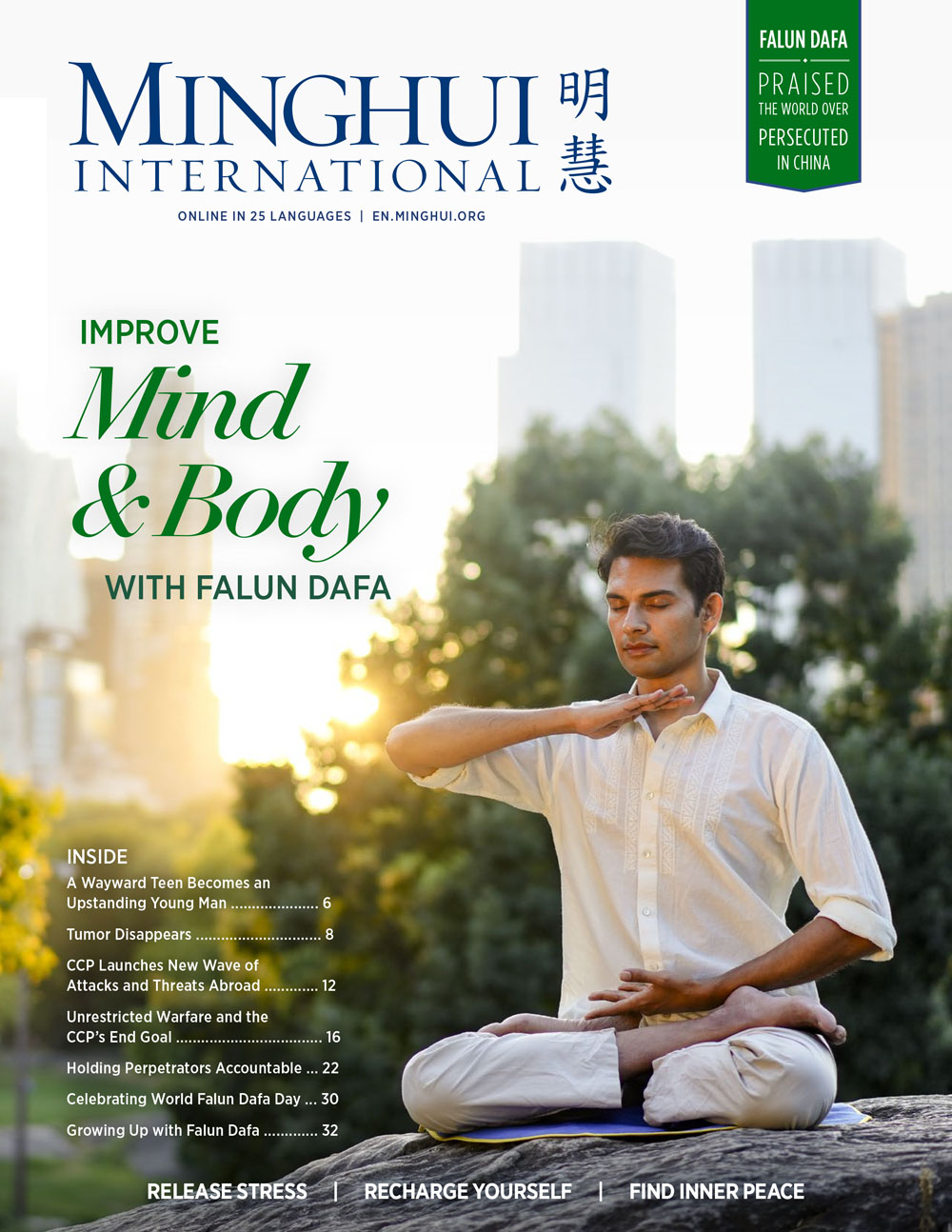(Minghui.org) Some people confuse “China” with “the Chinese Communist Party” (CCP), but these are two distinct terms. For example, the CCP is a political party, while China is often associated with people from certain ethnic groups with deep cultural roots. I would like to point out some additional differences.
History and Ideology
From the perspective of history, China has a 5,000-year civilization that spans many dynasties, and includes diverse cultures and traditions. The CCP, on the other hand, was only established in 1921 and took power in China in 1949. So the Chinese culture, languages, and ideological values (such as Confucianism and Taoism) existed long before the CCP.
The CCP’s ideology came from Marxism in Germany and Leninism in the Soviet Union. Such atheism based on violence fundamentally contradicted the peaceful spiritual systems in China, which included Confucianism, Buddhism, and Taoism. That is why the CCP launched numerous political campaigns to abolish traditional values, ranging from the Anti-Rightist Campaign in the 1950s to the Cultural Revolution (1966–1976), and others.
A Political Entity Versus a Nation
As a political party, the CCP has its own ideology and goals. In contrast, China is a nation with 56 ethnic groups and a population of over one billion, with an extensive historical and cultural heritage.
Therefore, the CCP cannot represent China, because it has ruled China for only a brief period in history. Even during this time, the mission of the Party doesn’t reflect the understandings of the Chinese people.
A Ruling Party Versus Ordinary Citizens
Before the population fell during the pandemic in China, there were 1.4 billion people in the country, including 96 million CCP members. That means fewer than 7% of Chinese citizens were CCP members, and the remainder, over 93%, were ordinary citizens, with different social statuses, lifestyles, and pursuits, compared to the CCP.
The CCP’s policies were not even issued on behalf of the people. The decisions come from senior CCP officials, with no participation from ordinary citizens. Numerous policies, such as confiscating land, the household registration system, internet censorship, and religious control, often cause public discontent, indicating that the CCP forces its opinions on people.
Cultural and Ideological Clashes
The CCP cannot tolerate traditional values, and has been trying to replace spiritual systems – such as Confucianism, Buddhism, and Taoism – with communism. The CCP destroyed countless historical artifacts during the Cultural Revolution, including ancient buildings, books, and religious sites. This confirms that the CCP’s doctrines, based on Marxism and Leninism, are incompatible with Chinese civilization.
Outside China, however, the traditional values have continued. Through languages, as well as Chinese traditions and festivals, overseas Chinese people are able to sustain their heritage. In Taiwan, traditional Chinese characters are the primary written language, and traditional festivals are celebrated. Shen Yun, a performing arts group based in New York, has successfully revived traditional Chinese culture over the past almost 20 years.
International Perspectives and Reality
The above reasons help the international community differentiate the CCP from China. For example, when some Western governments criticize human rights abuses in China, they are targeting the CCP, not the Chinese people or Chinese culture.
But the CCP intentionally conflates the two in its propaganda, such as by labeling any criticism as “anti-China.” In reality, questioning the CCP’s policies (for example, religious persecution, human rights abuses, censorship, and foreign policy) is different than criticizing Chinese history, culture, or its people. When overseas Chinese denounce the CCP, they still acknowledge and praise China’s heritage.
Social Impact
After the Nine Commentaries on the Communist Party was published in 2004, many people learned about the CCP’s bad deeds committed during the past several decades. Among the more than 450 million Chinese people who have renounced their memberships in the CCP and its affiliated organizations, a large number of them indicated they still like China very much, but not the CCP.
Many Hongkongers joined the Hong Kong Anti-Extradition Movement between 2019 and 2020. Like residents in Taiwan, they cherished Chinese culture but opposed the CCP’s ideology and totalitarian rule.
Given these reasons, many online posts on websites or social media outside China clearly announce “loving China does not equate to loving the CCP.” In fact, the CCP’s policies, such as the internet blockade, economic control, and religious persecution, have deprived Chinese people of their freedoms and caused losses to China.
Legal and Governance Framework
The Chinese Constitution states that the nation belongs to the people. But in reality, the CCP holds power through agencies such as the Politburo. Yet, this is not the only option. Throughout Chinese history and in most other countries, nations are ruled by multiple parties or other formats.
The CCP often emphasizes its leading role. The Party’s charter and policies provide privileges to Party members. It is obvious that a totalitarian regime like the CCP cannot represent Chinese people and their interests.
Summary
Based on these points, it’s clear that the CCP is a political party that does not equate to China and its ancient civilizations. More specifically, the CCP’s ideology and policies do not represent the Chinese people. International society and overseas Chinese often treat these two terms differently. From the perspectives of history, the CCP is just a brief moment in China’s history. In contrast, the nation of China existed long before the CCP and will continue after the CCP.
All this makes it clear that the term “China” is connected to history, culture, and the Chinese people, while the “CCP” is merely a political party based on Marxism, which resorts to violence and terror.
Copyright © 1999-2025 Minghui.org. All rights reserved.
Category: News Commentary








